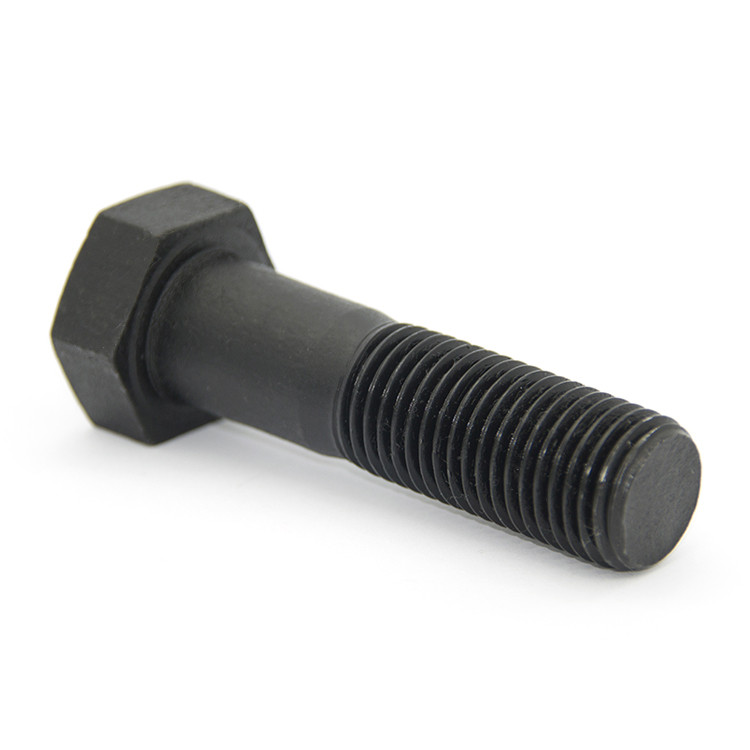high quality bolts 5050
Dec . 05, 2024 14:59 Back to list
high quality bolts 5050
The Importance of High-Quality Bolts in Modern Engineering
When it comes to construction and engineering, the significance of high-quality bolts cannot be overstated. These seemingly simple fasteners play a crucial role in the integrity and longevity of any structure. From towering skyscrapers to intricate machinery, high-quality bolts are essential in ensuring safety, stability, and overall functional reliability.
Understanding Bolts
Bolts are mechanical fasteners that are used to hold together two or more components by using a combination of tension and shear forces. Unlike other fastening methods, such as nails or rivets, bolts offer the unique advantage of being removable and reusable, making them a preferred choice in many applications. High-quality bolts are engineered to withstand significant loads and resist various types of stresses, including tensile, shear, and fatigue.
Importance of Quality
The quality of a bolt is determined by various factors, including the material used, the manufacturing process, and the finished product’s design. High-quality bolts are typically made from premium materials such as stainless steel, carbon steel, or alloy steel. These materials offer superior strength, corrosion resistance, and durability compared to cheaper alternatives. Additionally, the manufacturing process often involves precision machining, heat treatment, and surface finishing to enhance the performance of the bolts.
In contrast, low-quality bolts can lead to structural failures, which may result in costly repairs, lost productivity, and, most importantly, potential safety hazards. Poorly manufactured bolts may be prone to bending, breaking, or corroding, which can compromise the integrity of the entire assembly. In industries where safety is critical—such as automotive, aerospace, or civil engineering—using high-quality bolts is not merely recommended; it is a necessity.
high quality bolts 5050

Applications
High-quality bolts find applications in a multitude of fields. In construction, they are used to secure beams, columns, and trusses, forming the backbone of buildings and bridges. In the automotive industry, high-strength bolts are essential in assembling components such as engines, chassis, and suspension systems, where reliability is paramount. Similarly, in aerospace engineering, bolts must meet stringent specifications to ensure the safety and performance of aircraft.
Moreover, industries such as oil and gas, manufacturing, and renewable energy rely heavily on high-quality bolts. For instance, in wind turbine construction, bolts must withstand extreme environmental conditions while ensuring that turbines operate effectively. In oil rigs, the integrity of connections must be maintained to prevent leaks and ensure the safety of personnel.
Conclusion
In essence, the reliance on high-quality bolts in modern engineering is a clear indication of their vital role in creating safe and reliable structures and mechanisms. Investing in top-grade bolts ensures not only the efficiency of construction projects but also the safety and satisfaction of end-users. As technology and engineering continue to evolve, the demand for high-quality bolts will remain imperative. For engineers and manufacturers alike, understanding and prioritizing the importance of bolt quality is crucial in their pursuit of excellence and innovation.
In a world where time, efficiency, and safety are more critical than ever, the choice of bolts may seem like a small detail, but it is one that can make a significant difference in the success and safety of any engineering endeavor. Ultimately, it is the quality of these fasteners that holds our structures and machines together, literally and figuratively.
Latest news
-
High-Quality Panel Stud Bolt Reliable Panel Stud Bolt Factory & Suppliers
NewsJul.08,2025
-
High-Precision Fine Thread Locknuts Manufacturer & Supplier Custom Solutions
NewsJul.08,2025
-
PH Imperial Stud Bolt – High Strength Fasteners from Leading Supplier & Factory
NewsJul.07,2025
-
High-Quality Allen Wrench Bolts Leading Factory, Company & Suppliers
NewsJul.07,2025
-
Wholesale Ball Stud Bolt - High Quality Supplier & Factory Price Reliable Wholesale Ball Stud Bolt Company
NewsJul.06,2025
-
High-Strength Alloy Bolts Manufacturer & Supplier Quality Alloy Fasteners Factory
NewsJul.06,2025
